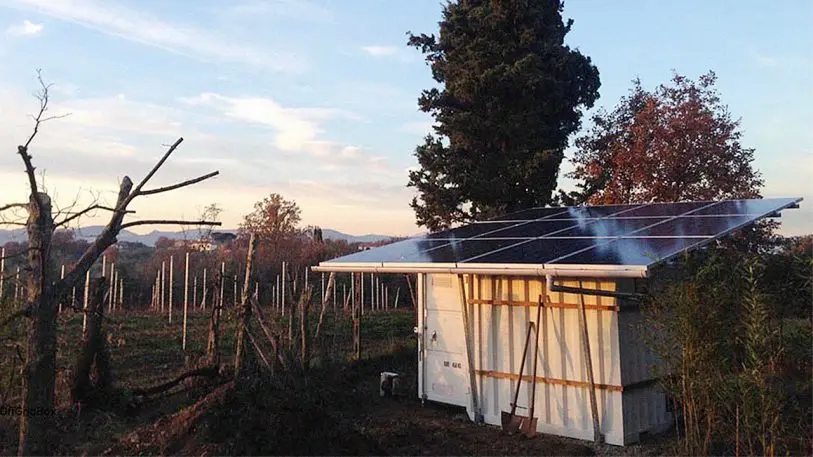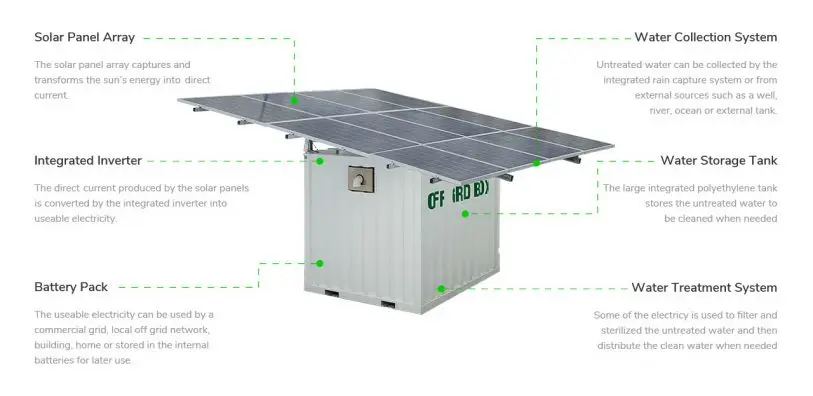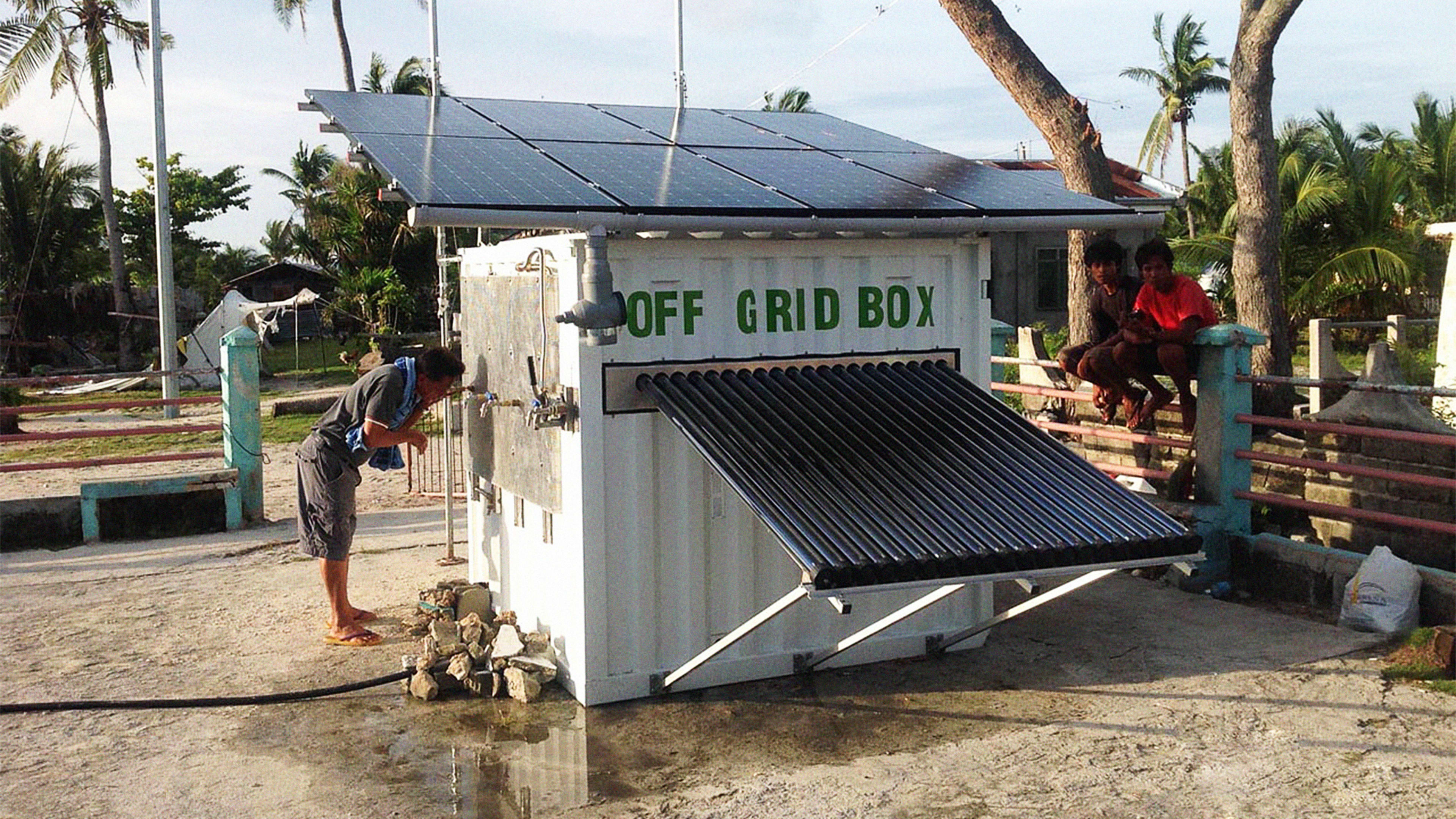Off Grid Box, an Italian startup, was founded to bring clean water and renewable energy to the millions of the people in the world who still live without. The box itself is a simple container, measuring six by six by six feet. With solar panels on top and water treatment inside, it can help remote communities with both off-grid energy and easily accessible filtered water. Founder and CEO Emiliano Cecchini has sold a few of the units, but he worries he’s not yet found the formula to take his invention to scale.
After three years on the market, Off Grid Box is a trusted enough product that 28 individuals and organizations have bought the container at $15,000 and up. Half the units went to nonprofits in Madagascar, Nigeria, Rwanda, Colombia, and elsewhere; another half to “cool guys that had a camper in the middle of nowhere, who want to be green, cool, resilient,” says Cecchini. One washed away to the Pacific Ocean: a unit that sat on the shore of Bantayan Island, in the Philippines, until it was caught by a 2014 typhoon.

Off Grid Box was recently selected for the 2017 cohort of the Mass Challenge accelerator program, in Boston, where Cecchini will hone a new business model. Instead of selling units to cool guys and NGOs, it now plans to install them where they are needed and then charge end-customers for access. For a few cents a day, people will able access clean water and clean power at a station continually attended by local people. “The new model is pay-as-you-go micro-payments, local contractors, and local empowerment,” Cecchini says.
The new business model is getting a thorough test in Rwanda, where the startup plans to install units in 18 villages. The government has commissioned 14 contractors to work on rural electrification, and Off Grid Box is partnered with three of them so far, Cecchini says. By 2020, it hopes to be serving 420,000 end-customers.

While in the U.S., Cecchini is signing up impact investors and donors, who can monitor their projects remotely and online. Each installation costs about $15,000–which comes out of a joint financing pool. He thinks the units can generate 10% profitability and that there will be further revenue opportunities to grow the business in the future. Ideally, the boxes will become community hubs, with Wi-Fi and associated commercial activity. “Once we add connectivity and we have people attending all day, we have a strong financial business model. The Wi-Fi opens up services that could be backed by venture capital.”
Recognize your brand’s excellence by applying to this year’s Brands That Matter Awards before the early-rate deadline, May 3.
